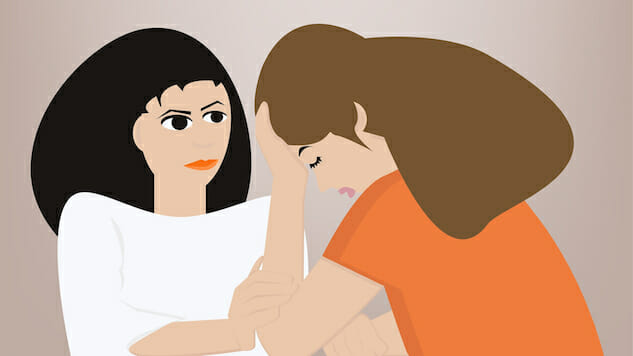
This article is not meant to diagnose or provide medical advice—that responsibility lies with physicians.
As a clinical and counseling psychologist, I’ve often witnessed people’s struggle to lead happier, more fulfilling, less anxious lives. Although empathy is normally viewed as a way of helping others, which it certainly is, it has an even more important function.
By definition, empathy is the ability to appreciate and understand the feelings and experiences of another. That does not mean that you agree or even like the other person, but rather that you can put yourself in their shoes, even when your viewpoints clash.
But it is more powerful than you think; empathy can optimize your personal and professional potential.
Admittedly, bringing empathy into your everyday life may seem slightly overwhelming. It’s important not to put too much pressure on yourself and practice self-empathy above all. Don’t expect to wake up tomorrow and suddenly rush empathy into everything you do. That would be stressful and counterproductive. Instead, try to take small, meaningful steps and be mindful of the way you address yourself, others and your tasks. That’s how you allow empathy to seep into your life and make a difference.
Below you will find information and advice, backed up by scientific research, to help you incorporate empathy into your life. Please bear in mind that this article has strictly informative purposes and for therapy of any kind, it is recommended that you meet with a mental health specialist.
1. Empathy and Your Physical Health
Psychosomatization, or the physical manifestation of mental distress, may lead to prolonged suffering. You probably know at least one person who has been struggling with a physical illness for years, while doctors can’t seem to find any rational explanation. Obviously, this is frustrating and extremely painful. Often the reason stems from negative emotions, which have been suppressed. In other words—psychosomatization. However, empathy acts as a preventative measure, as it allows you to release, rather than block your emotions, and connect your inner world to those of others. Therefore, it prevents you from keeping your negativity bottled up and promotes physical health.
2. Empathy and Your Psychological Well-being
A study conducted by the University of Wisconsin demonstrated the correlation between empathy and positive attitudes toward oneself, others and life events. People who work to improve their empathy reported experiencing less negative emotions, such as resentment and anger. Naturally, when you experience fewer unsettling emotions, your happy experiences dominate. In that way, setting off to increase your empathetic tendencies is also a leap toward a healthier state of mind.
3. Empathy and Coping
The higher your level of empathy, the easier it is to cope with life’s ups and downs. For instance, people who care for older adults on a regular basis, feel less stressed, tired and anxious if they score high on empathy, according to a study conducted at Georgia State University. At first, it may seem counterintuitive that taking on others’ emotional experience leads to lower, rather than higher levels of distress. However, the natural human response to stress is to focus in on the threat. In contrast, empathy is about focusing on the entire situation, its meaning and implications, as well as another person’s experience of it. Therefore, your focus shifts away from the perceived threat, and onto a more extensive, comprehensive perspective. Once you broaden your horizon, it becomes significantly easier to cope with difficulties, as you have a wider range of solutions at your disposal.
4. Empathy and Bonding
One of the main characteristics of empathy is that it increases one’s intrinsic motivation to reduce suffering. Therefore, it makes people kinder, more cooperative, flexible and understanding, which is why it is a great tool for forging strong relationships. Using knowledge of the common parenting styles, I can conclude that empathy as a parenting style, for instance, decreases deviant behavior in children, while promoting emotional stability, scholarly and professional successes. People who have more empathy also tend to be more satisfied with their romantic relationships, according to the Georgia State University study. Partners are less likely to hold grudges and seek revenge. Instead, they prefer to forgive and build mutual trust. What is more, during stressful periods in life, empathetic partners provide more effective support and are thus more likely to build a long-lasting compassionate bond, a study from The Journal of Personality and Social Psychology reported.
5. Empathy and Your Professional Life
Although a work setting is often associated with cutthroat behavior, empathy is actually more effective. Since it enhances your ability to connect to others, empathy also increases cooperativeness between individuals. Some professionals, such as instructors and physicians, will often find that their efforts become more fruitful whenever empathy plays a part. For instance, patients who perceive their doctor as empathetic are more likely to follow the prescription they’ve been given, according to a study published in The Journal of the American Board of Family Practice (JABFP). When it comes to negotiations, empathy leads to more significant gains for both parties, compared to non-empathizing discussions, found a study published in Psychological Science.
Liya Panayotova is a clinical and counseling psychologist, with interests in the cognitive-behavioral sciences. Her experience includes working with anxiety, depression, difficult relationships, addiction, motivation, children, grief and many more.